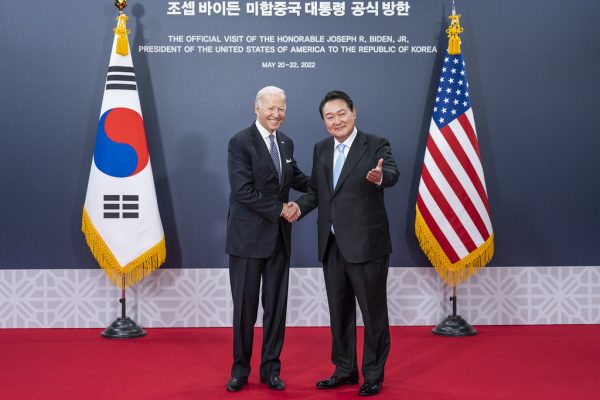Reprinted from “Observer Network,” written by Tian Feilong, Deputy Dean of the Law School of the Central University for Nationalities and member of the Cross-Strait Relations Law Research Association.
While people in mainland China are celebrating the Lunar New Year in harmony, the “violent law enforcement” by Taiwan’s “Coast Guard Administration” in the waters near Kinmen has resulted in the deaths of two mainland Chinese fishermen, leading to uncertain developments in cross-strait tensions and subsequent situations.
Amid widespread indignation, the mainland Chinese authorities, besides condemnation, have initiated substantive law enforcement actions, declaring non-recognition of the so-called “prohibited and restricted waters” around Kinmen, and conducting routine maritime law enforcement operations in the Xiamen-Kinmen waters to safeguard the safety of fishermen and jurisdictional order in the relevant waters.
The progression of this incident bears similarities to the Mainland’s breakthrough of the “median line” and the implementation of deterrence-based island encirclement patrols after “Pelosi’s visit to Taiwan.” This not only demonstrates the Mainland’s sovereignty assertion in accordance with UN Resolution 2758 and the Chinese Constitution but also gradually showcases and establishes a new norm of governance and law enforcement, signifying institutional progress towards cross-strait reunification in terms of legal principles and jurisdictional practices.
Taiwan accuses Mainland fishermen of “crossing the line,” but the Mainland’s official response and countermeasures declare the illegality of Taiwan’s violent law enforcement, which constitutes a “crossing of boundaries” of power. So who is really “crossing the line”?
Taiwan’s actions are based on its so-called “legal system” and regulations for law enforcement, driving away and chasing mainland Chinese fishermen. From its legal understanding and law enforcement practices, it fails to recognize the illegality of its own actions and the excessive violence in its law enforcement process. Its so-called law enforcement actions, rigid and even venting in nature, undermine the goodwill of the “One Family on Both Sides” policy and the integration development of Chinese people’s harmony and the Minnan-Taiwanese culture in the specific maritime space around Kinmen. Taiwan accuses Mainland fishermen of crossing its “legal boundary,” unaware that their so-called “legal regulations” do not have legal validity within the Chinese legal system, and the Mainland has merely tolerated their past law enforcement actions out of convention and goodwill.
The Taiwan “Coast Guard Administration” is the real “crossing the line” party, with the boundary they crossed being China’s “boundary of sovereignty.” Taiwan, with its “local separatist regime’s” “boundary of regulations,” confronts China’s representation of the “boundary of sovereignty.” Neither the international legal principles nor the constitutional legal principles support this. Now, with the disappearance of harmony and the breaking of conventions, Taiwan can only accept the Mainland Coast Guard’s new norm of law enforcement governance in the Xiamen-Kinmen waters and refrain from “crossing the line” to infringe on the legitimate rights and interests protected by the Chinese Constitution of Mainland fishermen.
Internal law enforcement reviews in Taiwan will certainly complain about the recklessness and officiousness of the usual law enforcement personnel, criticize and resist the Mainland Coast Guard’s new norm of law enforcement, but they are unlikely to have the will and power to directly confront and counter it. Intervention by external forces such as the United States is also not reliable. The United States has also accepted the Mainland’s new norm of governance over Taiwan affairs after “Pelosi’s visit to Taiwan.” The result this time is the same.
This sets up a new game rule for cross-strait relations, where every provocation and crossing of the line by the “Taiwan independence” separatist forces and external intervention forces will inevitably lead to a new normalcy in mainland China’s stance and actions toward Taiwan. Under the premise of the sovereignty attribution of “One China” and in accordance with UN resolutions and the Chinese Constitution, this will entail assuming a more extensive, precise, responsible, and sustainable jurisdictional responsibility.
This is a new normalcy in cross-strait relations that the Taiwan authorities and external intervention forces must clearly understand, constituting a significant challenge to the newly elected Lai Ching-te and his governing team. Cross-strait relations are currently in a period of obscure rule transformation. The US’s “strategy of using Taiwan against China” and even the strategy of “Ukrainianization of Taiwan” have been ongoing and highly harmful. The DPP’s “Taiwan independence” forces’ “relying on the US for independence” comprehensive political engineering and external liaison actions have been ongoing and highly harmful. With the internal divisions in the blue camp, the suppression of pro-reunification forces, and the traditional peaceful development and reunification of both sides based on the “1992 Consensus” encountering political obstacles and setbacks.

The mainland China cannot accept any new discourse on relations proposed by the DPP that deviates from the “1992 Consensus” and firmly opposes and punishes any “Taiwan independence” discourse and actions regarding the “mutual non-subordination” of both sides. Under these conditions, maintaining the integrity and effectiveness of the ECFA becomes a challenge, and the continuation of over twenty economic and livelihood agreements between the two sides becomes a problem. The “diplomatic war” between the two sides reignites, and Western intervention in Taiwan affairs through legislation and policy actions gradually approaches or even crosses the bottom line.
On the mainland China side, the process of national rejuvenation is accelerating, and strategic actions toward the center stage of the world are unfolding in an orderly manner. The global governance philosophy and institutional actions of global security initiatives, global development initiatives, and global civilization initiatives demonstrate the characteristics of Chinese civilization and the confidence of the Chinese nation. These interacting factors inevitably lead to the formation of mainland China’s new normalcy in governance over Taiwan in the context of the Kinmen conflict.
This demonstrates that the Mainland’s policy thinking of “unification on its own terms” and law enforcement strategies are supported by solid legal foundations and law enforcement capabilities. In a targeted statement, the Taiwan Affairs Office clearly denies the so-called “prohibited and restricted waters” unilaterally designated by Taiwan as the basis for law enforcement, thereby cutting off the legal legitimacy of Taiwan’s law enforcement authority from a sovereignty legal perspective. On the other hand, it explicitly acknowledges that the Xiamen-Kinmen waters belong to the traditional fishing grounds of fishermen from both sides of the strait, and the legitimate rights and interests of fishermen from both sides are protected by Mainland law enforcement. Compared to the illegal and irresponsible law enforcement actions of the Taiwanese Coast Guard department, the comprehensive law enforcement and protection responsibilities undertaken by the Mainland Coast Guard in the Xiamen-Kinmen waters are the best institutional arrangement to prevent such conflicts, which benefits fishermen on both sides of the strait.
However, such a new normal governance arrangement is not established through cross-strait negotiations but directly implemented by the Mainland based on sovereignty legal principles and the necessity of countermeasures. At least at the official level, Taiwan is unlikely to acknowledge it. This raises a new question: the cross-strait fisheries operations agreement and their interaction rules objectively require new negotiations and agreement arrangements. However, the DPP denies the “1992 Consensus” and interrupts various cross-strait agreements and negotiation processes, especially blocking special negotiations on the “one country, two systems” Taiwan plan with public power, leading to a severe weakening and marginalization of the “cross-strait mechanism” between the two sides, making it impossible to resolve conflicts in governance and jurisdiction through institutionalized negotiations. This is, of course, the hostile position of the DPP and the political consequence of “de-Chinaization,” leading to the occurrence of the Kinmen tragedy. If there is no regular administrative power negotiation mechanism established between the two sides through this conflict event, similar tragic incidents seem difficult to avoid. The “1992 Consensus” is the most important political prerequisite for such negotiation mechanisms.

The current progress of this incident shows that the Mainland holds the initiative and dominance in cross-strait relations, mastery of discourse power from international legal principles to sovereignty legal principles, demonstrates the legitimate will and power of jurisdictional actions, and can receive understanding and support from the majority of countries in the international community adhering to the principle of “one China.” The Taiwan Affairs Office has further demanded that Taiwan release fishermen, apologize and compensate, and punish the law enforcement culprits, reserving the right to take further measures. The “further measures” can obviously go beyond the current comprehensive law enforcement coverage of the coast guard and include criminal prosecution and personnel sanctions, ensuring that the perpetrators of Taiwan’s law enforcement pay a heavy price as a deterrent.
The mainland China’s response is by no means limited to “condemnation.” Peaceful development and reunification across the strait cannot be achieved through provocation and humiliation but must rely on strict sovereignty legal principles, law enforcement actions, and rational communication and negotiation, continuously shaping new norms, new discourses, and new interaction rules in the struggle over Taiwan-related affairs. This is to responsibly implement the overall strategy of the Party in the new era to solve the Taiwan issue and to maximize the maintenance of peace and stability in the Taiwan Strait and the complete reunification of both sides of the strait.
As for how the Taiwan authorities can learn from this conflict event and mainland China’s countermeasures, sincerely reflect on it, adopt politically wise and responsible cross-strait communication behaviors, find a way for peaceful coexistence between both sides of the strait amidst the great changes and overlapping risks of national rejuvenation, and make rational choices and understanding of the trend of complete reunification of both sides of the strait, that is another question.
However, in any case, the Kinmen incident presents opportunities amidst dangers. Mainland China’s new normalcy in governance over Taiwan-related matters is further established, the confrontational policies of the Taiwan authorities are further frustrated, the shortcomings of external intervention commitments and effectiveness are further exposed, and the reflection and interaction of the Chinese people on both sides of the strait may further deepen and demonstrate positive aspects. All of this is still evolving.





















Discussion about this post